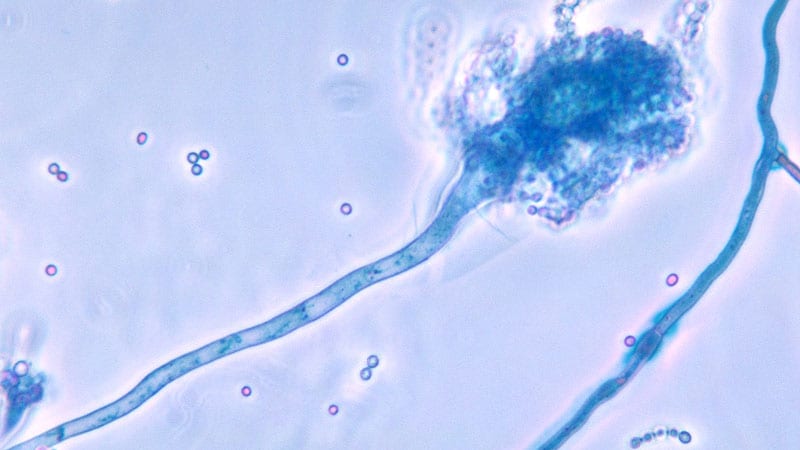Fungal Cultures in Bronchiectasis: Correlation with Outcomes Examined
Core Concepts
Positive fungal cultures in bronchiectasis patients do not predict outcomes.
Abstract
The study analyzed the correlation between positive fungal cultures and disease severity in bronchiectasis patients. The data, drawn from the Bronchiectasis and NTM Registry, showed no significant association between fungal cultures and adverse outcomes. The findings challenge the routine use of antifungal treatment in the absence of fungal-related complications, suggesting a need for further research in this area.
Key Highlights:
- Positive fungal cultures did not lead to more exacerbations or hospitalizations.
- Initial microbiologic evaluation often prompts antifungal treatment assumptions.
- The study questioned the necessity of culturing beyond bacterial pathogens.
- No statistical differences in age between patients with and without fungal infections.
- Eosinophilia was significantly associated with positive fungal cultures.
- Baseline FEV1 was slightly lower in patients with positive fungal cultures.
- Steroid use was linked to a higher risk of fungal infection.
- No discernible relationship between fungal infections and bronchiectasis severity.
Customize Summary
Rewrite with AI
Generate Citations
Translate Source
To Another Language
Generate MindMap
from source content
Visit Source
www.medscape.com
Fungal Cultures in Bronchiectasis Don’t Predict Outcomes
Stats
"Baseline FEV1 was slightly lower among those with a positive fungal culture even if the difference was highly significant (P = .0006)."
"Steroid use was associated with a statistically significant risk of fungal infection."
Quotes
"The question we were asking is whether there is some signal that suggests we need to take care of these patients differently, and the answer is no."
"Whether this [higher rate of fungal infection] just involves the environment or our antibiotics are driving the opportunity to permit the fungi to exist, we do not have the answer."
Key Insights Distilled From
by Ted Bosworth at www.medscape.com 07-20-2023
https://www.medscape.com/viewarticle/994600
Deeper Inquiries
How can these findings impact the current treatment guidelines for bronchiectasis patients
The findings of the study suggesting that the presence of a positive fungal culture in bronchiectasis patients does not correlate with disease severity or adverse outcomes can have significant implications for current treatment guidelines. This could potentially lead to a reevaluation of the necessity of routine fungal cultures in these patients. Clinicians may now consider ordering fungal cultures selectively, such as at the initial visit or when there is suspicion of fungal infection exacerbating the disease. This more targeted approach could help in optimizing resources and focusing on interventions that are more likely to impact patient outcomes positively.
What are the implications of the study's results on the broader understanding of fungal infections in respiratory diseases
The study's results have broader implications for the understanding of fungal infections in respiratory diseases, particularly in bronchiectasis patients. The data suggest that the presence of fungus in the culture of bronchiectasis patients may not necessarily indicate a more severe disease course or worse outcomes. This challenges the conventional assumption that positive fungal cultures require treatment and raises questions about the value of routine culturing for fungi in the absence of specific symptoms or complications related to fungal infections. It highlights the need for further research to better understand the role of fungi in respiratory diseases and to guide appropriate diagnostic and treatment strategies.
How might the overuse of antibiotics contribute to the prevalence of fungal infections in bronchiectasis patients
The overuse of antibiotics in bronchiectasis patients may contribute to the prevalence of fungal infections, as suggested by the study findings. The data showed that patients with positive bacterial cultures were more likely to have fungal infections, indicating a potential link between antibiotic use and fungal colonization. Antibiotics can disrupt the normal microbial balance in the respiratory tract, creating an environment that may promote fungal growth. Additionally, the study found a statistically significant association between steroid use and fungal infections, further highlighting the complex interplay between medications and fungal colonization. Clinicians should be cautious about the indiscriminate use of antibiotics and steroids in bronchiectasis patients to minimize the risk of fungal infections and their potential complications.
0
